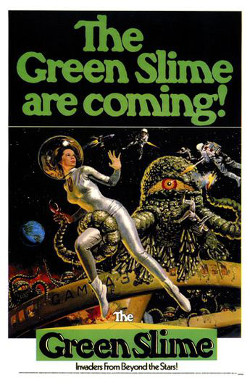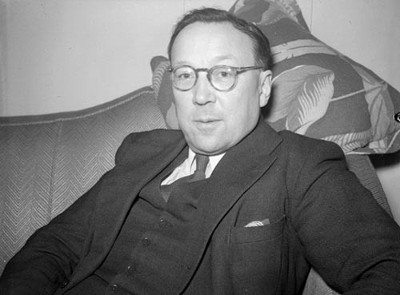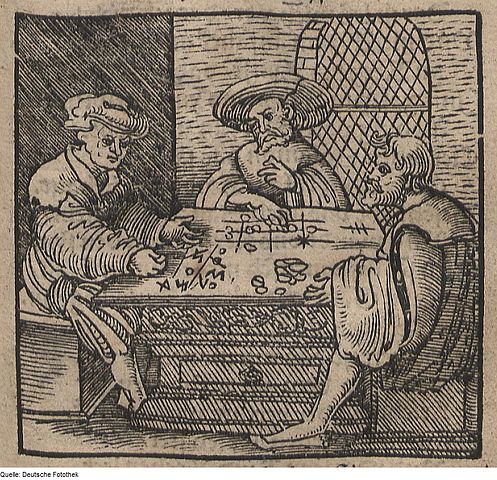A mother is 21 years older than her son. Six years from now, she will be five times his age. Where’s the father?
I won’t give the answer to this one — if you do the math, you’ll know precisely where he is.
A mother is 21 years older than her son. Six years from now, she will be five times his age. Where’s the father?
I won’t give the answer to this one — if you do the math, you’ll know precisely where he is.
On Dec. 1, 1948, a well-dressed corpse appeared on a beach in South Australia. Despite 66 years of investigation, no one has ever been able to establish who the man was, how he came to be there, or even how he died.
In this episode of the Futility Closet podcast we’ll delve into the mystery of the Somerton man, a fascinating tale that involves secret codes, a love triangle, and the Rubaiyat of Omar Khayyam. We’ll also hear Franklin Adams praise the thesaurus and puzzle over some surprising consequences of firing a gun.

A puzzle from University of Michigan philosopher Kendall Walton:
“Charles is watching a horror movie about a terrible green slime. He cringes in his seat as the slime oozes slowly but relentlessly over the earth, destroying everything in its path. Soon a greasy head emerges from the undulating mas, and two beady eyes fix on the camera. The slime, picking up speed, oozes on a new course straight toward the viewers. Charles emits a shriek and clutches desperately at his chair. Afterwards, still shaken, he confesses that he was ‘terrified’ of the slime.”
Was he? Walton says no. Charles may have felt intense fear, even shrieking as the slime approached the camera. But he knew that he was not literally in danger. This was not a half-belief or a “gut” feeling — he never considered leaving the theater or calling the police, for instance. Charles wasn’t motivated to avoid the slime physically. Yet he says that what he felt was fear of the slime.
What are we to make of this? “This issue is of fundamental importance,” Walton writes. “It is crucially related to the basic question of why and how fiction is important, why we find it valuable, why we do not dismiss novels, films, and plays as ‘mere fiction’ and hence unworthy of serious attention.” What is the answer?
(Kendall Walton, “Fearing Fictions,” Journal of Philosophy, January 1978.)

From Stephen Barr’s Experiments in Topology (1989) via Miodrag Petkovic’s Mathematics and Chess (1997):
This apartment contains eight rooms, each measuring 9 square meters, except for the top one, which measures 18 square meters. You have enough red paint to cover 27 square meters, enough yellow paint to cover 27 square meters, enough green paint to cover 18 square meters, and enough blue paint to cover 9 square meters. Can you paint the eight floors in four colors so that each room neighbors rooms of the other three colors?

British inventor Sir Robert Watson-Watt pioneered the development of radar, a contribution that helped the Royal Air Force win the Battle of Britain. Ironically, after the war he was pulled over for speeding by a Canadian policeman wielding a radar gun. His wife tried to point out the absurdity of the situation, but the officer wasn’t interested, and the couple drove away with a $12.50 fine. Watson-Watt wrote this poem:
Pity Sir Robert Watson-Watt,
strange target of this radar plot
And thus, with others I can mention,
the victim of his own invention.
His magical all-seeing eye
enabled cloud-bound planes to fly
but now by some ironic twist
it spots the speeding motorist
and bites, no doubt with legal wit,
the hand that once created it.
Oh Frankenstein who lost control
of monsters man created whole,
with fondest sympathy regard
one more hoist with his petard.
As for you courageous boffins
who may be nailing up your coffins,
particularly those whose mission
deals in the realm of nuclear fission,
pause and contemplate fate’s counter plot
and learn with us what’s Watson-Watt.
(Thanks, Chris.)
A time-travel paradox from Robin Le Poidevin’s Travels in Four Dimensions, 2003:
Tim is spending the summer holiday at his grandfather’s house in rural Sussex. Bored one day, he wanders into his grandfather’s library. On one of the more remote shelves, Tim discovers a dusty book with no title on its spine. Opening it, he sees it is a diary, written in a familiar hand. With a growing sense of wonder he realizes that one of the entries provides detailed instructions on how to build a time machine. Over the next few years, following the instructions to the last detail, Tim builds such a machine. It is finally completed, and he steps on board, and throws the switch. Instantly, he is transported back fifty years. Unfortunately, both the machine and book are destroyed in the process. Tim writes down everything he can remember in a diary. He cannot rebuild the machine, however, because it requires technology that is not yet available. Reconciled to getting back to the twenty-first century by the traditional method of doing nothing and letting time carry one back, he marries and has a daughter. The family move to a rambling mansion in rural Sussex. The diary is left to gather dust in the library. Years later, Tim’s grandson, spending his summer holidays with his grandfather, discovers the diary.
“The identity of Tim will be obvious,” writes Le Poidevin, “and this in itself is rather strange. But the question we are concerned with is this: where did the inforation on how to build a time machine come from? From the diary, of course, which itself was written by Tim. But where did he get the information from? From the very same diary! So the information has appeared from nowhere. At no stage has someone worked out for themselves how to build a time machine and passed on the information. The existence of this information is therefore utterly mysterious.”
The interactive installation Text Rain (1999), by Camille Utterback and Romy Achituv, invites participants to view themselves on a monitor while letters rain down upon them. “Like rain or snow, the text appears to land on participants’ heads and arms. The text responds to the participants’ motions and can be caught, lifted, and then let fall again. The falling text will land on anything darker than a certain threshold, and ‘fall’ whenever that obstacle is removed.”
The letters aren’t random — they form the poem “Talk, You,” from Evan Zimroth’s 1993 book Dead, Dinner, or Naked:
I like talking with you,
simply that: conversing,
a turning-with or -around,
as in your turning around
to face me suddenly …
At your turning, each part
of my body turns to verb.
We are the opposite
of tongue-tied, if there
were such an antonym;
We are synonyms
for limbs’ loosening
of syntax,
and yet turn to nothing:
It’s just talk.
“If a participant accumulates enough letters along their outstretched arms, or along the silhouette of any dark object, they can sometimes catch an entire word, or even a phrase,” the artists note. “‘Reading’ the phrases in the Text Rain installation becomes a physical as well as a cerebral endeavor.”

Ohio State University philosopher Stewart Shapiro relates a puzzling experience that a friend once encountered in a physics lab. “The class was looking at an oscilloscope and a funny shape kept forming at the end of the screen. Although it had nothing to do with the lesson that day, my friend asked for an explanation. The lab instructor wrote something on the board (probably a differential equation) and said that the funny shape occurs because a function solving the equation has a zero at a particular value. My friend told me that he became even more puzzled that the occurrence of a zero in a function should count as an explanation of a physical event, but he did not feel up to pursuing the issue further at the time.
“This example indicates that much of the theoretical and practical work in a science consists of constructing or discovering mathematical models of physical phenomena. Many scientific and engineering problems are tasks of finding a differential equation, a formula, or a function associated with a class of phenomena. A scientific ‘explanation’ of a physical event often amounts to no more than a mathematical description of it, but what on earth can that mean? What is a mathematical description of a physical event?”
What right do we have to presume that the natural world will hew to mathematical laws? And why does the universe oblige us so graciously by doing so? Repeatedly, mathematicians have developed abstract structures and concepts that have later found unexpected applications in science. How can this happen?
“It is positively spooky how the physicist finds the mathematician has been there before him or her.” — Steven Weinberg
“I find it quite amazing that it is possible to predict what will happen by mathematics, which is simply following rules which really have nothing to do with the original thing.” — Richard Feynman
“One cannot escape the feeling that these mathematical formulae have an independent existence and intelligence of their own, that they are wiser than we are, wiser even than their discoverers, that we get more out of them than was originally put into them.” — Heinrich Hertz
“The miracle of the appropriateness of the language of mathematics for the formulation of the laws of physics is a wonderful gift which we neither understand nor deserve.” — Eugene Wigner
(From Stewart Shapiro, Thinking About Mathematics, 2000; also his paper “Mathematics and Reality” in Philosophy of Science 50:4 [December 1983].)
Letter from Lewis Carroll to Gertrude Chataway, Dec. 9, 1875:
This really will not do, you know, sending one more kiss every time by post: the parcel gets so heavy it is quite expensive. When the postman brought in the last letter, he looked quite grave. ‘Two pounds to pay, sir!’ he said. ‘Extra weight, sir!’ (I think he cheats a little, by the way. He often makes me pay two pounds, when I think it should be pence). ‘Oh, if you please, Mr. Postman!’ I said, going down gracefully on one knee (I wish you could see me go down on one knee to a postman — it’s a very pretty sight), ‘do excuse me just this once! It’s only from a little girl!’
‘Only from a little girl!’ he growled. ‘What are little girls made of?’ ‘Sugar and spice,’ I began to say, ‘and all that’s ni–‘ but he interrupted me. ‘No! I don’t mean that. I mean, what’s the good of little girls, when they send such heavy letters?’ ‘Well, they’re not much good, certainly,’ I said, rather sadly.
‘Mind you don’t get any more such letters,’ he said, ‘at least, not from that particular little girl. I know her well, and she’s a regular bad one!’ That’s not true, is it? I don’t believe he ever saw you, and you’re not a bad one, are you? However, I promised him we would send each other very few more letters — ‘Only two thousand four hundred and seventy, or so,’ I said. ‘Oh!’ he said, ‘a little number like that doesn’t signify. What I meant is, you mustn’t send many.’
So you see we must keep count now, and when we get to two thousand four hundred and seventy, we mustn’t write any more, unless the postman gives us leave.